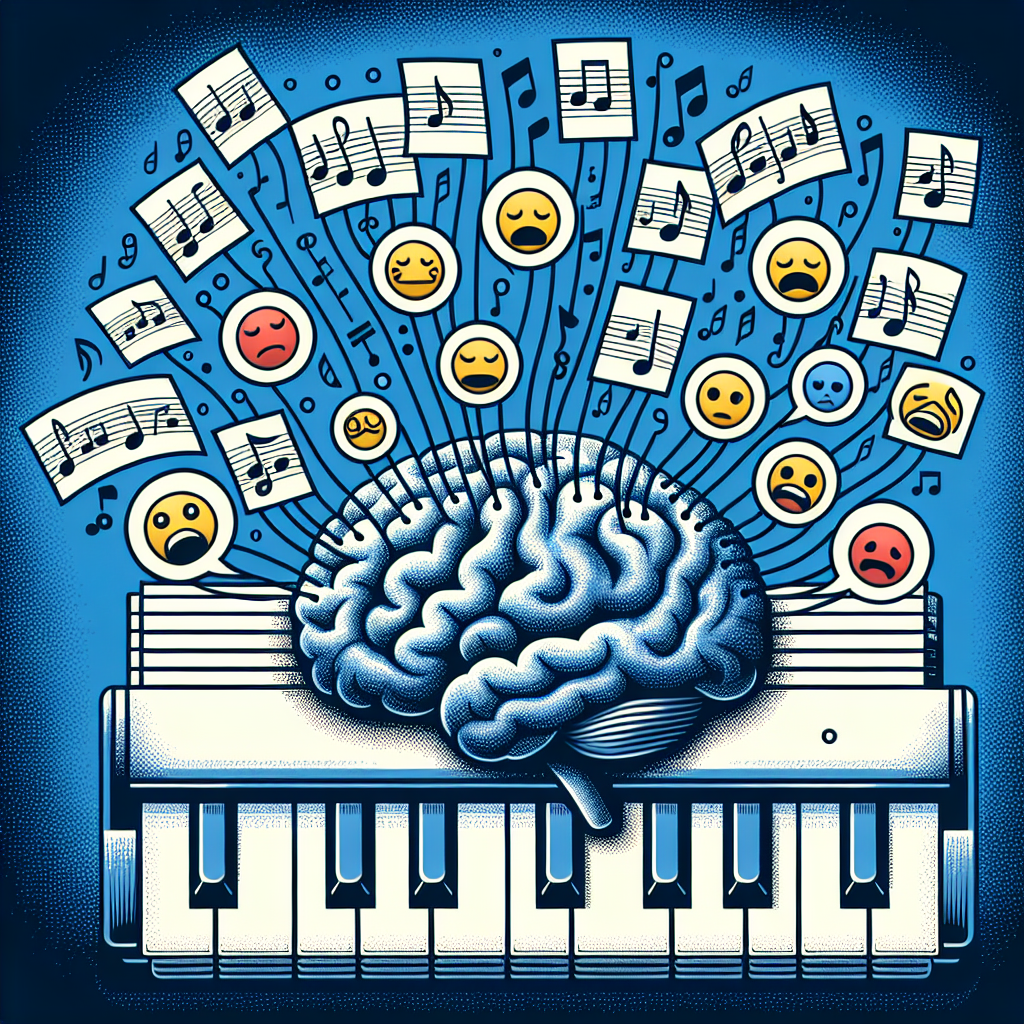Music has always been a powerful tool for evoking emotions and connecting with others on a deep level. From the haunting melodies of classical symphonies to the catchy tunes of pop songs, music has the ability to touch our hearts and souls in ways that words alone cannot. With advancements in artificial intelligence (AI) technology, we are now seeing the emergence of AI-generated music that is capable of eliciting complex emotional responses from listeners. This begs the question: can AI truly possess emotional intelligence when it comes to creating music?
Exploring the Emotional Intelligence of AI-Generated Music
AI-generated music is created using algorithms that analyze patterns in existing music and generate new compositions based on these patterns. These algorithms can be programmed to mimic the style of a particular composer or genre, or to create entirely new and innovative pieces of music. The process of creating AI-generated music involves a combination of creativity, mathematics, and machine learning, as the algorithms learn from the vast amounts of data they are fed in order to generate music that is both technically sound and emotionally resonant.
One of the key challenges in creating AI-generated music that is emotionally intelligent is defining what it means for music to be emotionally intelligent in the first place. Emotions are complex and subjective, and what one person finds emotionally moving, another may find dull or irritating. In order for AI-generated music to be truly emotionally intelligent, it must be able to evoke a wide range of emotions in listeners, from joy and excitement to sadness and nostalgia.
One way that AI-generated music can achieve emotional intelligence is through the use of emotional cues and musical techniques that have been proven to elicit specific emotional responses in listeners. For example, certain chord progressions, melodies, and rhythms are known to evoke feelings of happiness, while others may evoke feelings of sadness or tension. By analyzing these patterns in existing music and incorporating them into their compositions, AI algorithms can create music that is more likely to resonate with listeners on an emotional level.
Another important aspect of emotional intelligence in AI-generated music is the ability to adapt and respond to the emotional cues of listeners in real time. This can be achieved through the use of machine learning algorithms that analyze the emotional responses of listeners to a piece of music and adjust the composition accordingly. For example, if a listener expresses boredom or disinterest in a particular section of a song, the AI algorithm can modify that section to make it more engaging and emotionally compelling.
Despite these advancements, there are still limitations to the emotional intelligence of AI-generated music. While AI algorithms can analyze patterns in existing music and generate new compositions based on these patterns, they may struggle to create music that is truly original and innovative. Additionally, the emotional responses that listeners have to music are highly subjective and can vary widely from person to person, making it difficult for AI algorithms to predict and cater to the emotional preferences of every listener.
FAQs:
Q: Can AI-generated music truly evoke emotions in listeners?
A: Yes, AI-generated music has the potential to evoke emotions in listeners through the use of emotional cues and musical techniques that have been proven to elicit specific emotional responses.
Q: How does AI-generated music achieve emotional intelligence?
A: AI-generated music achieves emotional intelligence through the analysis of patterns in existing music, the incorporation of emotional cues and musical techniques, and the adaptation to the emotional responses of listeners in real time.
Q: What are the limitations of the emotional intelligence of AI-generated music?
A: The limitations of the emotional intelligence of AI-generated music include the struggle to create truly original and innovative compositions, and the challenge of predicting and catering to the emotional preferences of every listener.
In conclusion, the emotional intelligence of AI-generated music is a fascinating and rapidly evolving field that holds great promise for the future of music composition and performance. While there are still limitations to the emotional intelligence of AI-generated music, advancements in AI technology are making it increasingly possible for AI algorithms to create music that is emotionally resonant and engaging for listeners. As AI continues to develop and improve, we can expect to see even more innovative and emotionally intelligent music being created by machines in the years to come.

